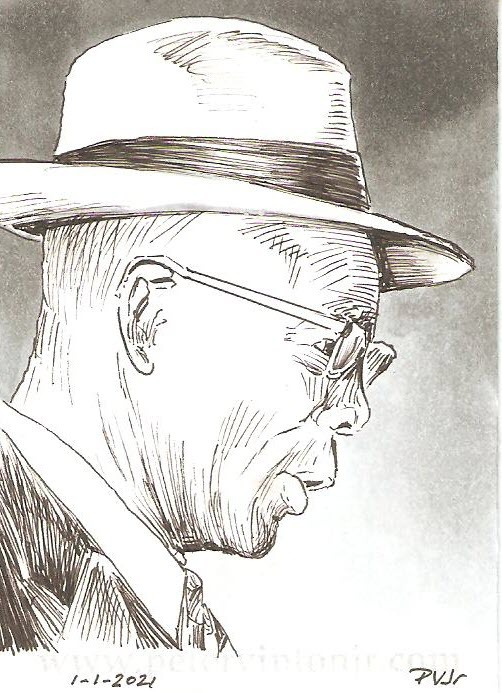
An ongoing illustrative history study
This piece originally posted 2/13/2021
Prelude | CMB | 66 | 67 | 68 | 69 | 70 | 71 | 72 | 73 | Email |
|---|
"Your spark can become a flame and change everything."
No discussion on the achievements of Asa Philip Randolph is complete without also studying the equally remarkable path of his one-time colleague E. D. (Edgar Daniel) Nixon. Born in 1899 Alabama, Nixon worked as a Pullman sleeping car porter in the early 1920's and came into contact with Randolph, eventually helping to co-found the Brotherhood of Sleeping Car Porters Union in 1925 (see previous Lesson in this series).
Nixon became actively involved with the local --and then statewide-- chapter of the NAACP. In the 1940's Nixon organized a 750-person march on Montgomery (AL) County Municipal Courthouse to challenge exclusionary voter policies --the first major protest march for Black voting rights in that state since Reconstruction. In the 1950's he also pushed for the Montgomery Police Dept. to hire its first-ever Black police officers.
Nixon's most well-known contribution to civil rights, however, was much more behind-the-scenes... but ultimately cleared the way for a tempest. On December 1, 1955, seamstress Rosa Parks was arrested for refusing to give up her seat on a municipal bus to a white passenger. Nixon put up his own house to post Parks' bail and convinced her and her family --along with other members of the NAACP, including (apocryphally) a charismatic young 26 year-old minister named Martin Luther King-- to initiate a citywide bus boycott. Nixon also shrewdly managed to secure a white attorney, Clifford Durr, to represent Parks. The Montgomery Improvement Association (MIA) was formed and the first boycotts kicked off on the same day as Parks' trial (December 5). For the next year Montgomery's black citizens would refuse to ride public transportation, instigating momentum that would ultimately sweep as far as the U.S. Supreme Court. Nixon's role was not without consequences; his house was bombed on February 1, 1956 --fortunately he was not home at the time.
Nixon mostly faded off the civil rights stage after the Montgomery Bus Boycott, participating little in the struggles associated with the 1960's. It is only recently that his name has resurfaced as having played such a pivotal role in igniting the cause of civil rights in Alabama.
Next page - Lesson 70: Hallie Quinn Brown